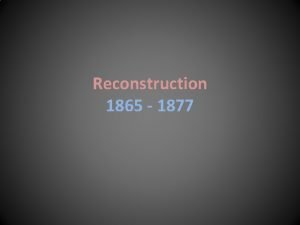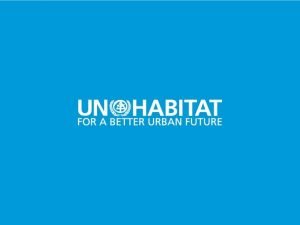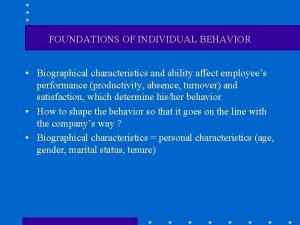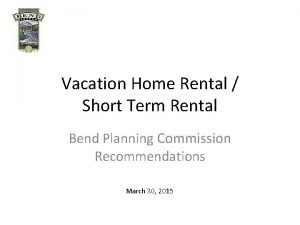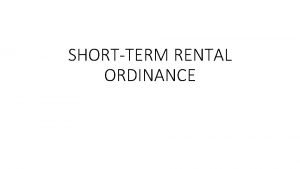Rental Tenure Types in PostSocialist Countries case of







- Slides: 7

Rental Tenure Types in Post-Socialist Countries – case of Hungary József Hegedüs Emerging Private Rental Sector in Accession and Transition Countries: Is there an Option for Social Rental Agencies? Conference and Workshop in Budapest, September 12 -14, 2013 The presentation is based on Hegedüs-Horváth-Somogyi: Social Rental Agencies in Hungary – Overcoming Legal and Financial Constraints The paper is based on the TENLAW (Tenancy Law and Housing Policy in Multi-level Europe) project under EU FP 7, and project on Social Rental Agencies in Hungary in cooperation with Habitat for Humanity financed by Open Society Fundation

Tenure in the East-European Housing Modell – case of Hungary East-European Housing Model: state control through different political and economic mechanisms n Cracks in EEHM: eradicate or reintegrate n Four housing regimes: attempt at total control (1949 -56); state-private sector compromise (195769); „age of housing estates” (1970 -83); market elements reintroduced (1983 -89). n Social and legal contect of tenures had been changing (for example – owner occupation) n Metropolitan Research Institute 2

Change of tenures -- examples Forced Private rental World War I tradition: rent control & limitations to termination; strong tenant protection. n Property not explicitly nationalised, but owners lose their control. Private property should not be used for „profit making”. n Landlords find legal loopholes to regain control over property. FPRS market emerges. n Informal Sublet Market Forced industrialisation, intensive urbanisation housing shortage n Central control over rental stock: rent control, tenant protection, „underused” space - typical sympthoms n Emergence of an uncontrolled, informal sublet market for „underused” rooms: sublet rate same as black market rent (multiple times the official rent level) n Metropolitan Research Institute 3

Legal structure of the tenure changes after transition Regulations on State Owned Housing Civil Code Housing Law Municipal Decrees Sectoral Laws: Gas Supply Law District Heating Law … etc. Law on Condominiums, Law on Cooperatives … These lawdefine certain aspects of tenure law Law on Judicial Execution

Tenure „variations” in the private rental n n n The “basic” commercial rental contracts are regulated by the Housing law. It is considered to be a standard for-profit activity, and is taxed accordingly. The sector is underregulated, the related laws largely remain unenforced, and to a large extent the sector is part of the black market. Restituted rentals, under (relatively) new private landlords: in Hungary, this issue is not very significant, but it may be so in Bulgaria and Romania. Renting as “hotel” or hospitality services (under the law regulating leisure accommodation services) – although intended for commercial and non-profit hospitality services, it is also used by non-profit agencies and public institutions. “Rent to buy” scheme: it is used by private landlords whose aim is to sell the property, but there is no demand (purchasing power) despite of tenants’ preference for home ownership. „House-sitter” – rent to „freinds” whitout rent payment Metropolitan Research Institute 5

Tenure variation in public rental n n n n Social rental (before 1989 rules) Cost based rental (introduced in 2000) Market rental Rental house for young couples Special rental units for certain professions (e. g. artists rental studios) Tied accommodation (Military residential housing) Property Management Agency (a version of the mortgage rescue program) Social family housing program (another version of the mortgage rescue program) Metropolitan Research Institute 6

The dynamic of the changes Social „actors” (groups, organizations, etc. ) feel the legal framework unacceptable to manage the risks (conflicts) new solutions mostly close to informal sector legalizations (interest groups) new tensions emerge, soem actors feels the solution unecceptable etc. Metropolitan Research Institute 7
